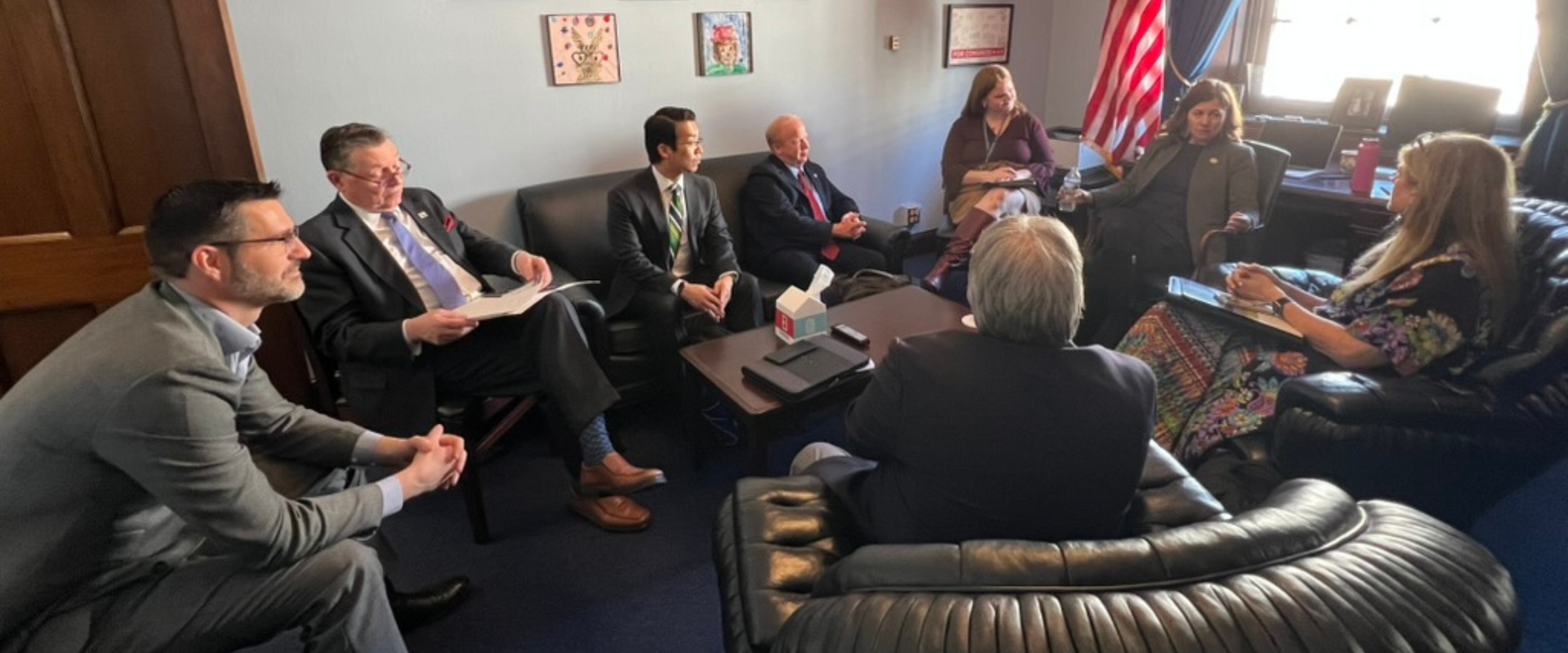Michigan Life Science Organizations Visit Capitol Hill

MichBio was back on Capitol Hill last week as part of the annual BIO Legislative Fly-In to discuss issues of paramount interest to the pharmaceutical and biotech sectors. Joining MichBio were representatives from early-stage companies, a standards-setting non-profit, an intellectual property practice, and a patient advocacy group. In addition, MichBio hosted a Capitol Hill Breakfast Reception (supported by Emergent Biosolutions and Regeneron) for the Michigan Members of Congress and office staff.
The group met with each of the Michigan Congressional offices over two days to discuss how various executive orders, policy moves, and legislative actions are impacting biotech innovation and Michigan bio-industry growth. We were fortunate to meet directly with Reps. Dingell, McDonald Rivet, Moolenaar, Scholten, Thanedar and Tlaib, and in passing with Sen. Peters.
Michigan’s life sciences industry is a key economic driver, supporting over 47,000 direct jobs and contributing over $55 Billion to our state’s economy. From biopharmaceuticals and medical technology to agriculture and healthtech, our industry fosters innovation, attracts investment, and ensures that Michigan remains a leader in academic scientific discovery, commercialization and manufacturing.
We advocated on several federal legislative and regulatory matters including:
- Repeal of cuts to NIH funding and FDA staffing
- Negative impact of tariffs on supply chain and product access
- Repeal of R&D tax amortization through legislation
- Reauthorization of the SBIR program to support early-stage innovation
- Passage of the EPIC, MINI and Orphan Cures Acts as fixes to the negative outcomes of the Inflation Reduction Act of 2022 that would expand and protect critical investment in drug development
- Reauthorization of the Rare Pediatric Disease Priority Review Voucher Program
- Repeal of the NIST Guidance on Bayh-Dole March-In Rights that seeks to loosen conditions whereby the federal government can claw back patents and licenses
- Reauthorization of the Farm Bill, with strong support for biotechnology, biobased products, and streamlined regulation
These advocacy efforts reflect the interconnected nature of Michigan’s bio-industry and its ability to influence federal policy for the better. Together, the voices of companies, nonprofits, and patient advocates ensure that the industry remains robust and capable of meeting future challenges. By working collectively, Michigan's life sciences community not only strengthens the state’s economy but also helps advance innovation and improve lives on a national scale.
RECENT ARTICLES




